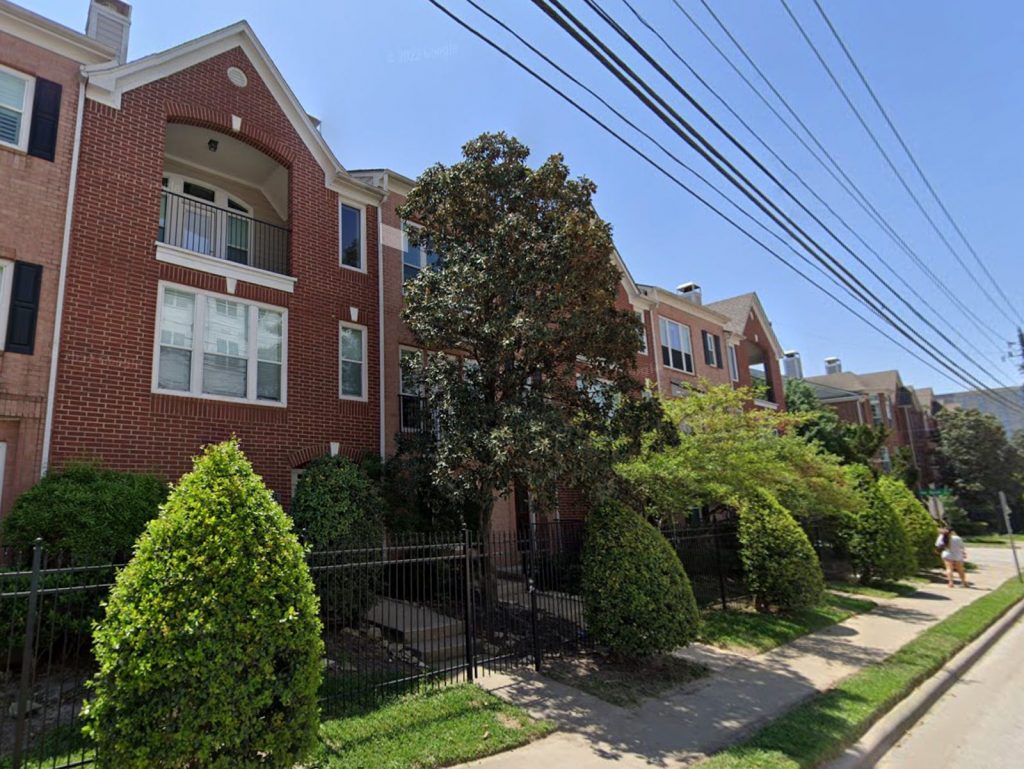Though National u-turned on its bipartisan agreement with Labour on the Medium Density Residential Standards (MDRS), there is a way it can be salvaged whilst winning the ACT Party’s support in the process, writes Yes In Our Backyards co-author Marko Garlick

National’s alternative policy, a ‘30 years of growth’ housing target, is ambitious but has already been criticised as hard to define and police, and would likely take years to implement. Meanwhile the MDRS has already been partially implemented in most major cities, with hearing panels determining the scope of exemptions in the coming months as the final step.
Many of our major problems – housing (un)affordability, carbon emissions, low productivity and social ills – stem from our chronic shortage of homes. The MDRS was one of our best hopes at tackling those issues.
With the new Government formed, there is a way National could use an idea from Houston, Texas to save the MDRS, and even get ACT on board.
Houston’s street-level opt outs
Houston, Texas has famously cheap housing. In 2023, the house price to income ratio in Houston was only 4.7 compared to 10.4 in Auckland. Flat land, abundant freeways, and sprawl-enabling policies has allowed housing supply to easily keep up with demand by adding new suburbs at the city fringe. Houston has almost no zoning, with some basic restrictions on building. For years, the city enforced a minimum lot size of ~450 square metres in most neighbourhoods meaning only large detached homes could be built.
In 1998, the city reduced that minimum to ~130 square metres and adjusted setbacks, which allowed three townhouses on a typical lot across most of the city. Sound familiar?
This change was extended into the outer suburbs in 2013, unleashing a torrent of townhouse developments. Now, Houston has plentiful quality townhouses at a range of price points. This new density means the city is now urbanising from its sprawly, exurban starting point. New frequent bus and light rail lines are pencilled in, and getting built.
If Houston was anything like cities in New Zealand (or Australia, the UK, or other big US cities) these density-enabling changes would’ve been fiercely resisted by density-hating homeowners. But by most accounts, these changes were largely uncontroversial. Why? Perhaps because Houston allowed pockets of homeowners to ‘opt out’ of these city-wide changes.
Anya Martin’s excellent article in Works in Progress goes through this opt-out process. Landowners within small blocks could collectively opt out of the density-enabling rules via private deed restrictions – similar to covenants in New Zealand – which are automatically recognised by the city. These deeds could be used to, amongst other things, set a higher minimum lot size than the new city minimum – effectively banning townhouses. A simple petition needed to attract just 51% support from landowners. These private deed restrictions would typically expire after 25–30 years.
In short the opt outs:
- Apply to small geographic areas only; a block, not a whole suburb.
- Require a majority consent from landowners in that area; a few people can’t decide for everyone.
- Have a sunset clause; they don’t last forever.

How MDRS opt outs could work in New Zealand
The MDRS enable lots of houses and isn’t subject to the definitional challenges of the housing targets proposed by National, which would open the door to local council shenanigans and gerrymandering (see California’s experience).
But it was clearly a politically risky policy. It applies to all suburbs, in all major cities. Councils’ weak financial incentives and poor infrastructure track record makes it hard to convince the average homeowner that new homes provide a net positive that should be welcomed, rather than a net negative that should be avoided.
Proposed exemptions have already abounded. Vocal suburbs that were previously tightly zoned have desperately tried to rely on extensive ‘character’ areas, ‘the angle of the southern latitude sun’, and ‘lack of public transport’ (in Christchurch), and ‘the existence of possible public transport’ (in Auckland). These exemptions are clearly not what Ministers envisaged when the MDRS was developed.
Street-level opts out could solve a lot of these problems. Under the status quo scenario, motivated residents with anti-density preferences can only stop ambitious city-wide reforms like the MDRS by advocating for large suburb-wide exemptions, or by calling to scrap the reforms entirely (successfully, in the case of National’s backdown).
Allowing street-level opt outs, like in Houston, would mean accepting that in some areas residents really really value their current low-density, built environment. Allowing them to opt out easily at their immediate local level, prevents them resorting to campaigns that tank housing capacity in large parts of a city or the entire country as a side effect.
Here’s how this could save the MDRS: National establishes a new “Street-level Private Plan Change” process that would allow a small area to opt out of the MDRS and retain their current zoning. This could only occur if, say, 70% of homeowners in the area vote to agree. A ten year sunset clause limits the duration of this opt out. In exchange for providing this opt-out process, National could credibly take a strict approach and crack down on the various city-wide exemptions currently proposed by local councils. Strong mandates but with small opt outs as a pressure valve to make the whole thing politically viable.
There would obviously be some serious design issues to work through. How do you define a ‘street block’? Should these opt-outs apply to the NPS-UD upzoning areas too? What should the voting threshold be set at? Difficult yes, but these questions can all be worked through.
ACT campaigned hard against the MDRS despite its ostensible libertarian roots, probably because of its home-owning voter base in the leafy Auckland electorates of Epsom and Tāmaki. Instead, it put forward a policy of street level ‘opt-ins’, based on an idea from London YIMBY called Street Votes. With street-level opt-outs, ACT could support the MDRS by saying it gives residents the option to avoid central government mandates. NZ First appears to oppose the MDRS too, but might be amenable to street-level opt outs.
The main benefit of street-level opt outs is that they confine vocal opponents to blocking housing only in their immediate vicinity, rather than needing to pursue suburb-level exemptions. A pressure valve of sorts. The majority voting requirement also means the handful of extreme anti-density types, who usually run residents associations, would be just a handful of voters among many on their street, rather than having their fringe voice amplified through traditional local government processes. These people are surprisingly influential, and effective, despite being quite irrational. A bit of targeted direct democracy could seriously quash their power – pursuing small scale opt-outs could keep them very busy. If they really think everyone hates density, they should have to prove it by convincing their neighbours to vote accordingly.
Opt outs will probably be more prevalent in wealthy suburbs like Ponsonby and Fendalton yes, but even in those suburbs there will still be upzoning. Unlike, typical zoning carve outs (which at present tend to exempt entire suburbs), street-level opt outs would require each street to vote to not upzone. In practice, that will likely be quite confined. Just see the modest scope of opt outs in Houston in that image above.
Many people will value the right to redevelop their property from one home with three, over preventing all their neighbours from having the same right. In some parts of Auckland, opting out of the MDRS could mean some homeowners forgoing a truly massive uplift in the value of their land. That’s why opt outs are better than opt ins: it is very clear to homeowners what they are losing. We’ve already seen this in New Zealand: see the push back from Lower Hutt residents to proposed new character protections, citing harms to their property values. Sunset clauses mean residents on a street would have to reaffirm their opposition to density and choose to forgo a property value uplift periodically.
In time, the opt out process might make it politically viable to extend the MDRS to places like Queenstown and Nelson, or make the MDRS even better by enabling perimeter block housing.
Would this work? These opt outs feel wrong on a certain level. The ability for high-income neighbourhoods to vote to freeze themselves in time and stop new residents is far from egalitarian. But I have come around to them, and with all the exemptions being pursued right now, the MDRS was going to be compromised in one way or another eventually.
Our housing shortage is so bad, this alternative idea might just be worth a shot.










